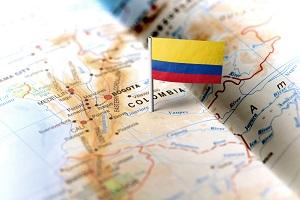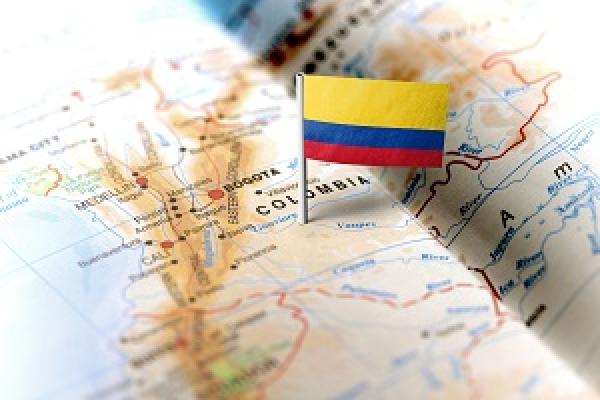
Steamship Mutual
Published: May 07, 2021
The Club’s two correspondents in Colombia, A&A Multiprime and Pandi Colombia have sent reports about the recent unrest in their country and its impact on shipping.
Report from correspondents Pandi Colombia 13 May 2021

Three weeks into these nationwide anti-government protests, protesters have blocked key roads leading to Maritime Terminals across the country, specifically Buenaventura, the main port of the Pacific Coast of Colombia, and Puerto Bolivar, one of the biggest Coal Terminal of the Caribbean coast. Please find below a summary of the situation in those Ports:
BUENAVENTURA
Since the beginning of the protest on April 28, the roads out the city have been periodically blocked, preventing the imported cargo from leaving the Port Terminals as well as disrupting the truck supply to transport cargo. The roads are now completely blocked and the situation is very difficult for maritime transport as they have accumulated cargo in their yard and have no spare space for additional merchandise.
The following Terminals no longer receive cargo and Vessels are forced to wait at anchor:
- Compas Cascajal
- Compas Aguadulce
Sociedad Puerto Industrial Aguadulce S.A. has already reached maximum container capacity so Vessels are now diverted to Sociedad Portuaria Regional de Buenaventura S.A.
Other than the cargo from vessels at berth and scheduled at anchor, Sociedad Portuaria Regional de Buenaventura S.A. is currently only receiving containers.
Grupo Portuario - Ventura Group , known as “Pier 13”, is now at 95% capacity.
It is impossible to predict when the road blocks will be cleared. Once they are, bringing operations back to normal will be a lengthy process that will probably take weeks.
PUERTO BOLIVAR
Former employees of Cerrejon – coal mine of the Terminal -, empowered by the national wide protests, have blocked the rail line to the Terminal since May 5th. There is no alternate route to bring the coal to the Port, as the roads that lead to the Terminal are not paved, are next to the rail line and can also be blocked.
The coal reserves in the yard of the Terminal are now empty and vessels are forced to wait at anchor.
It is also impossible to predict when the rail line will be reopened. Best scenario is by the end of the week. But the climate of political unrest across the country does not help the situation, as the national and local governments have many things on their plate.
Once the blockade is lifted, the rail line will need one or two days to restart operations and, as far we know, has the capacity to supply around 90,000 MT / day to the Port Terminal.
Our thanks to correspondents Pandi Colombia
Club Correspondents A&A Multiprime of Colombia have provided this information regarding the situation in Colombia on 7 May 2021.
Following the Government's filing of the tax reform proposal in the Congress on 15 April, different sectors including trade unions, transport workers, and students called for a national strike ("Paro Nacional") and several protests that began on 28 April.
Despite the resignation of the Minister of Finance and the withdrawal of the tax reform proposal, demonstrations and road blockades in several cities have continued to protest against the Police. So far, the national strike has left more than 30 deaths, 800 people injured and, according to the Ombudsman's Office, 89 people missing.
Concerning the shipping industry, on the Atlantic coast, port operations have not yet been affected. However, road blockades and mobility restrictions have made access to the terminals difficult for Surveyors, especially in Barranquilla. On the Pacific coast, particularly in the port of Buenaventura, the issue is more complex. Since the beginning of the strike, there have been several blockades on the road leading to Buenaventura that have totally restricted access to this city. Thus, lack of transportation has delayed some unloading operations, especially of bulk carriers, as terminals are reaching the top of their storage capacity. Additionally, some provisions, food products, and gas are already in short supply at this port.
Should the national strike continue, it is very likely that unloading operations around the country will come to an almost complete halt due to road blockades and the participation of transporters in the strike. It is also possible that various supplies, food products, and basic provisions will become limited and cannot be provided to vessels' crews.
Our thanks to correspondents A&A Multiprime


